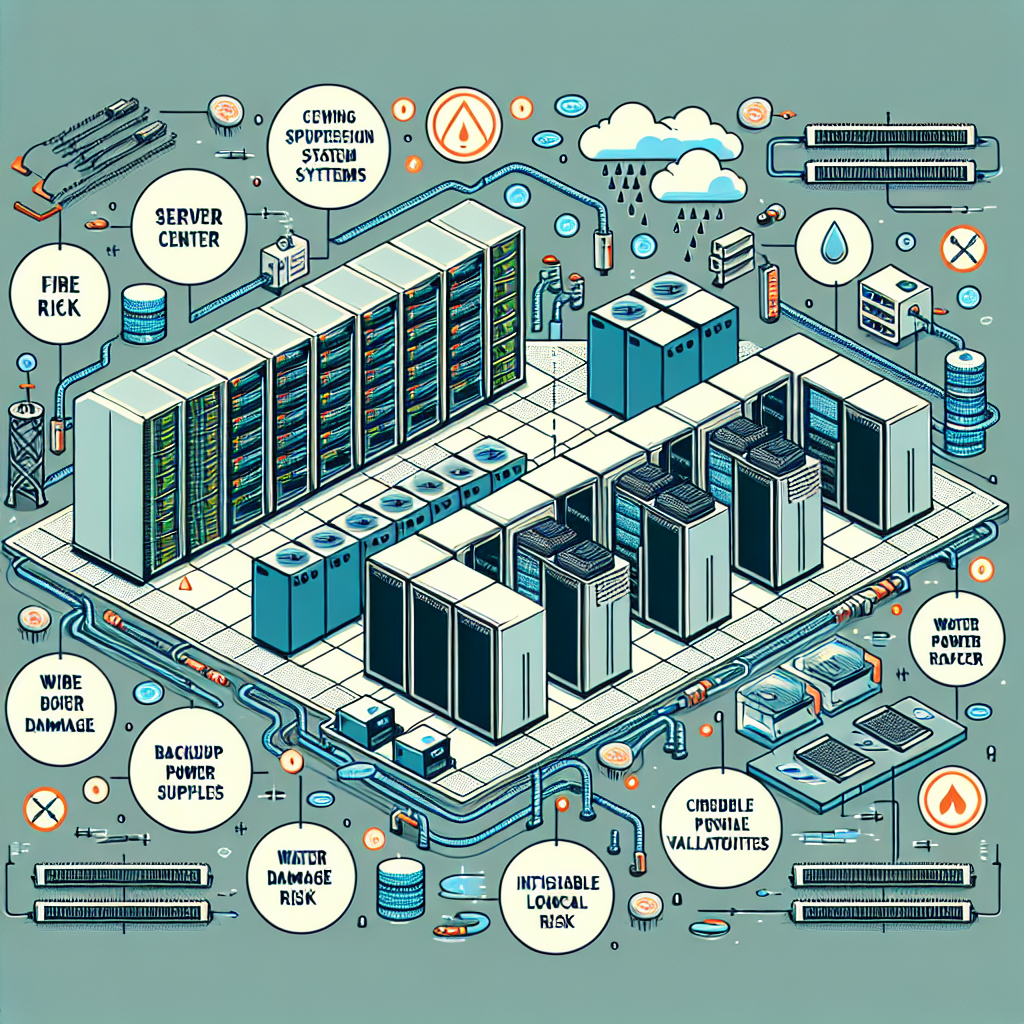Data centers are vital components of modern businesses, serving as the backbone of their operations by housing and managing critical data and applications. However, data center environments come with their own set of risks that can compromise the security, availability, and performance of the infrastructure. It is crucial for organizations to conduct a thorough risk assessment to identify and mitigate potential threats to their data center environments.
Here are some of the top risks to consider in data center environments:
1. Physical Security Risks: Physical security risks include unauthorized access, theft, vandalism, and natural disasters. Unauthorized access can lead to data breaches and compromise sensitive information stored in the data center. Theft and vandalism can result in damage to equipment and disruption of services. Natural disasters such as earthquakes, floods, and fires can cause significant damage to the data center infrastructure, resulting in downtime and data loss.
2. Power and Cooling Risks: Data centers require a constant and reliable power supply to ensure uninterrupted operations. Power outages can lead to downtime and data loss, impacting business continuity. Inadequate cooling systems can result in overheating of equipment, leading to hardware failures and system crashes. It is essential to have backup power sources and efficient cooling systems in place to mitigate these risks.
3. Cybersecurity Risks: Cybersecurity risks include malware, ransomware, phishing attacks, and insider threats. Malware and ransomware can infect servers and compromise data integrity, leading to data breaches and financial losses. Phishing attacks can trick employees into revealing sensitive information, while insider threats can result in unauthorized access to data and systems. It is crucial to implement robust cybersecurity measures, such as firewalls, antivirus software, encryption, and access controls, to protect data center environments from cyber threats.
4. Compliance Risks: Data centers are subject to various regulatory requirements and industry standards, such as GDPR, HIPAA, and PCI DSS. Non-compliance with these regulations can result in legal consequences, fines, and damage to the organization’s reputation. It is essential to conduct regular audits and assessments to ensure that data center environments comply with relevant regulations and standards.
5. Data Loss Risks: Data loss can occur due to hardware failures, human errors, software bugs, and natural disasters. Losing critical data can have severe consequences for businesses, impacting their operations, reputation, and financial stability. It is essential to implement data backup and recovery strategies to minimize the risk of data loss and ensure the availability of data in case of emergencies.
In conclusion, data center environments are susceptible to various risks that can impact the security, availability, and performance of the infrastructure. Organizations must conduct a comprehensive risk assessment to identify and mitigate potential threats to their data center environments. By addressing physical security, power and cooling, cybersecurity, compliance, and data loss risks, organizations can ensure the resilience and reliability of their data center operations.


Leave a Reply